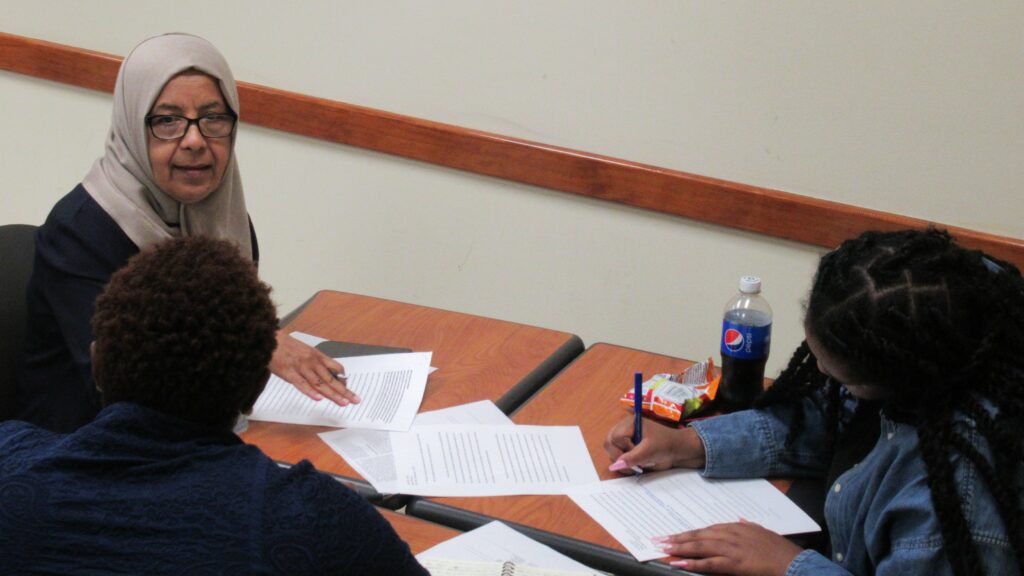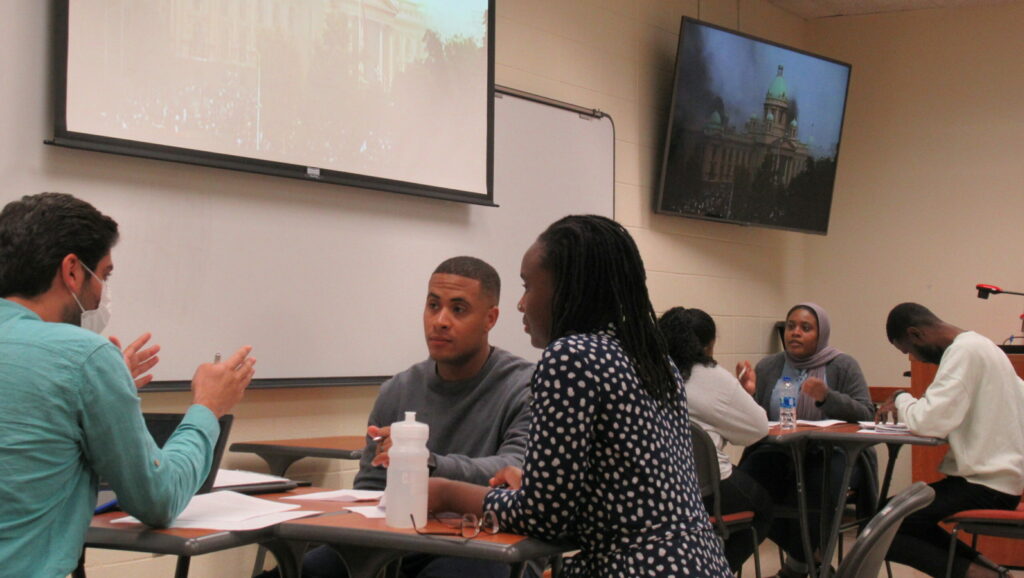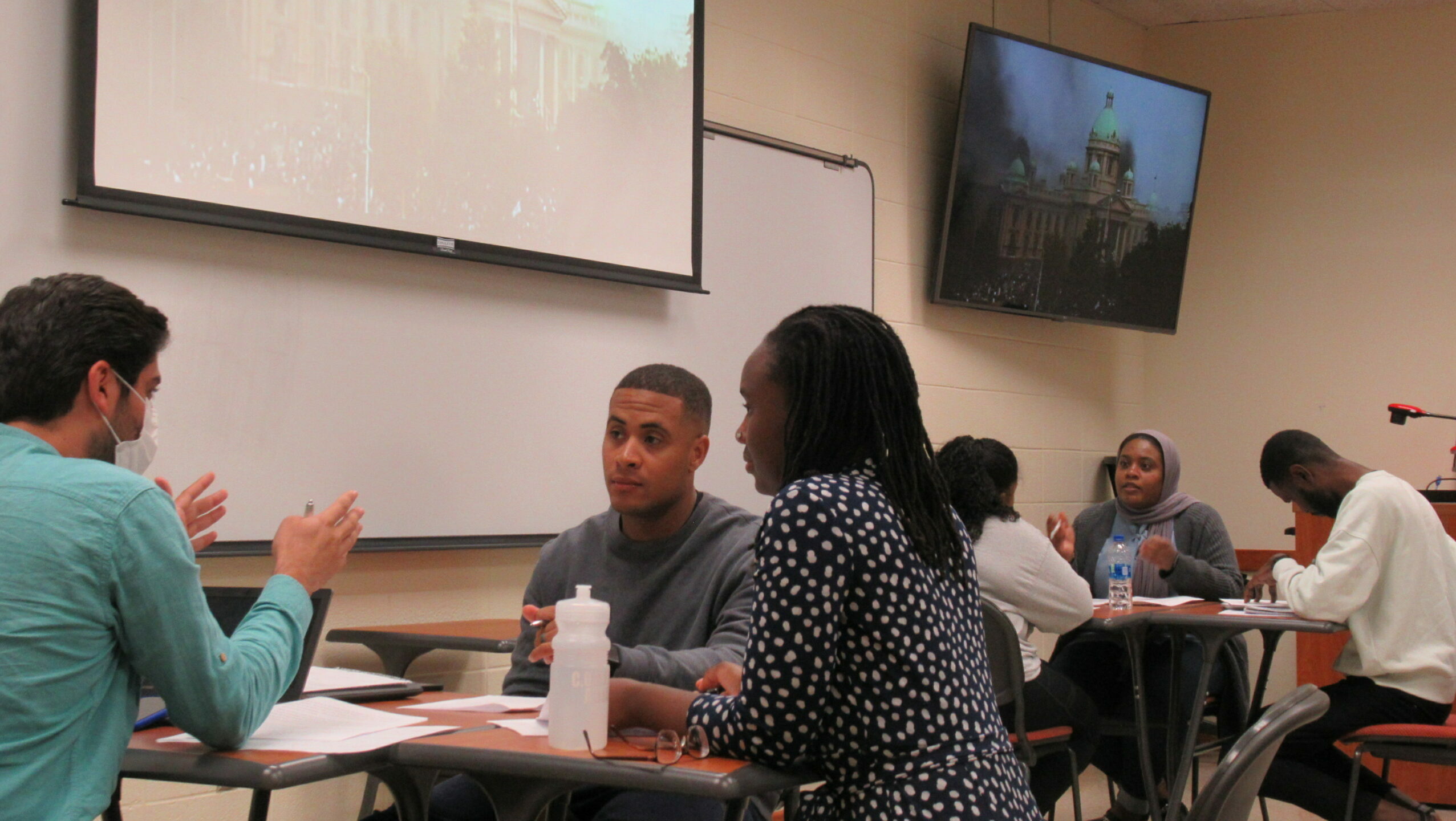This semester, Peace and Conflict Studies (PCS) implements new programs at the bachelor’s and master’s levels that provide students with greater choice and flexibility for earning their degrees as they work for the change they’d like to see in the world. PCS now will highlight three interrelated areas of focus, Sustainability and Climate Change, Social Justice, and Community Engagement, the latter being a longstanding and important emphasis across UNCG and within PCS.
Over the last several years, PCS has been shifting towards having less required courses and more electives, so that now, the B.A. degree can be completed with five plus five, that is, five required courses and five PCS elective courses of a student’s choice. Similarly, the master’s degree concentrations are now built around less required courses and more choice.
Professor Jeremy Rinker, Director of Undergraduate Studies, is enthusiastic about the changes, saying,
The new curriculum in PCS will allow our undergraduate students more freedom to choose from exciting elective courses that explore the wicked problems we as a human society face.
This new curriculum also encourages interaction of undergraduate and graduate students in 400-600 level classes, in turn building a stronger PCS community at UNCG.

At both the bachelor’s and master’s level, students still have the option to enroll as online or campus-based students. Under the new programs, the campus-based concentrations include a Master’s Thesis option as well as a Practicum option. The online PCS program has been ranked second in the country and the online M.A. program continues to attract students from around North Carolina, nationally, and internationally.
Director of Graduate Studies, Professor Marcia Hale, explains
Our M.A. program offers coursework around core themes of Social Justice, Community Engagement, and Sustainability & Climate Change, as well as tools and skills in the research and practice of conflict transformation and resolution.
Practitioners, researchers, and activist-scholars are welcome to apply.
Some of the new electives that are now offered to undergrads and grad students include:
- The Power of Nonviolence for Social Change
- Conflict Transformation at the Food-Water Nexus
- Restorative Justice: Theory and Models
- Reconciliation, Spirituality, and Community in Peacebuilding
- Ecocultures and Sustainable Communities
- Borders, Partitions, and Generative Othering Narratives
- Forced Migration (Minor Seminar for Undergrads)
PCS also is participating in a new Post Baccalaureate Certificate in “Climate Justice” and a new undergraduate Minor in “Forced Migration and Resettlement Studies” for students that want to focus on these timely topics.
Professor Rinker notes,
“In the new PCS curriculum, our undergraduate students will be better able to connect theory with practice (e.g., do what we call praxis) and our graduate students have new options to dive deeper into research through writing a MA thesis.”
A sampling of PCS career opportunities are very diverse. Alumna Tori Crook says,
The UNCG PCS department has prepared me in ways I never imagined possible, with career paths I never would have put myself in. It gave me skills to deal with conflict on a personal level, as well as public and department levels.
A recent graduate of the PCS Online M.A. program, Crystal Salina MacKinnon, comments on putting her PCS knowledge to work: “Well first, in the classes much of what we cover is tied to real world situations, as opposed to simply theory. …This leads into my ‘peace journalism’ activities and ‘the radical new paradigm of simply telling the truth’.”

Professor Douglas P. Fry, Department Chair, emphasizes that “These programmatic changes simultaneously retain what we have been doing well and open-up new study possibilities for our students, many of whom are passionately dedicated to helping others, resolving conflicts, and improving society. I am glad that PCS will now focus more directly on the climate crisis, social and environmental justice, and how to live sustainably within nature, locally and globally. These are critically important topics, and our graduates will be at the vanguard of creating innovative solutions to such challenges.
* Quote is from Amanda Gorman, The Hill We Climb, 2021
